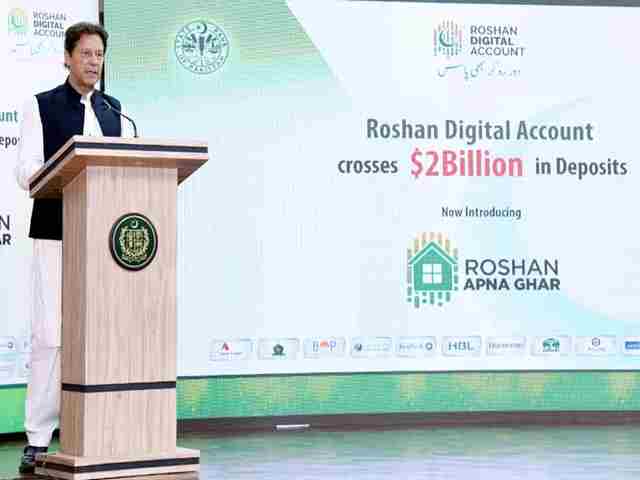ISLAMABAD: Federal Board of Revenue (FBR) on Monday issued a circular to streamline the taxation on cooperative housing societies.
In the Circular No. 03 of Income Tax (Operations), the FBR said that taxation of Cooperative Housing Societies (CHS) registered under the Cooperative Societies Act, 1925, has historically faced challenges – majorly on three counts.
One, real estate development projects, per se, take a lot longer time to complete than normal projects thereby creating difficulties in the recognition of revenues and expenses.
Two, most CHSs have been claiming exemption from tax under “Doctrine of Mutuality” implying none could earn income or profit by transacting with himself.
Three, the diverse treatment meted out to CHSs across Formations has led to conflicting case laws further complicating the scenario.
These challenges have cumulatively resulted in below par revenue outcomes for the exchequer, and increased compliance costs for CHSs with legal actions being stuck in appellate courts for decades.
Thus, it is imperative that taxation of CHSs is standardized by forging a uniform view on its various aspects – tax status, taxability, accounting, mutuality, a fair formula of taxation – for across-the-board implementation as outlined below: –
I. Tax Status: Under section 23 of the Cooperative Housing Societies Act, 1925 (as may be adapted by Provinces), a CHS upon registration becomes “a body corporate by the name under which it is registered, with perpetual succession and a common seal, and with power to hold property, to enter into contracts, to institute, and defend suits and other legal proceedings.” Section 80(2)(e) of the Income Tax Ordinance, 2001 (I.T.O. 2001), likewise classifies a CHS as a “company” for taxation purposes. Thus, there is no doubt or dispute that a CHS is to be treated a company for action under the I.T.O. 2001.
II. Business Model Peculiarities: Although the fact that the persons in control of a CHS’s strategic decision making, financial affairs, and day-to-day management can rotationally change via elections amongst its own members after a legally defined period, yet its management perpetually stays with its members, which, essentially makes it operate on commercial considerations like any other real estate venture run on profit motives. There is little doubt that all incomes accruing to a CHS on any count are taxable – including “advances from customers” or consideration received against sale or booking of plots and other pieces of land. However, most CHSs do not recognize their receipts from members against sale or booking of plots as revenues in trading account, and instead, directly transfer them to balance sheet and offset them against “cost of land” or “development expenditure.” Likewise, P&L account items i.e. incomes arising from heads like “membership fee,” “transfer fee,” “surcharge & fines” etc. are offset against “management expenses.” The result of these accounting tricks is that CHSs as a sector end up contributing no or negligible revenues to the exchequer.
III. Method of Accounting: Section 32(2) of the I.T.O. 2001, mandates a CHS due to its being “company,” to “account for income chargeable to tax under the head ‘Income from Business’ on an accrual basis.” This matter has settled in the case law titled Pakistan Cycle Industries Society Ltd vs LTO, Lahore and reported as 2016 PTD15 ATIR. Accordingly, all Formations are duty-bound to ensure that not only that all CHSs file their tax returns proper but also that the tax returns are duly enclosed by audited accounts on accrual basis.
IV. Taxability & Doctrine of Mutuality: The income of CHSs was chargeable to tax u/s 22 of the Income Tax Ordinance, 1979 (hereinafter “the I.T.O. 1979”). Subsequently, Clause (103), and (103A) were inserted in Part I, 2nd Schedule to the I.T.O. 1979 in 1990, essentially to exempt its “income, profits, and gains as is derived by it as a result of its dealings with its members involving sale of goods for the personal use of its such members…” It was apparently in pursuance to these changes that CHSs started to claim exemption from tax under the so-called Doctrine of Mutuality at a mass scale. Astonishingly, this practice of seeking exemption by CHSs on account of mutuality continued even in the wake of deletion of Clause (103A) in 1992, and Clause (103) in 1993. The promulgation of the Income Tax Ordinance, 2001 (hereinafter “the I.T.O. 2001”) whereby the income of a CHS was undoubtedly chargeable to tax u/s 18(1)(b), did not change the situation on the ground.
Superior courts have also upheld that Doctrine of Mutuality does not apply to CHSs in any manner. In the case of Lawyers Cooperative Housing Society reported as ITA 800-810/IB/2004, it was unequivocally held that “there being a third entity in terms of registered cooperative society which is a juridical person, the concept of Doctrine of Mutuality not does not apply.” Likewise, in the case of Pakistan Petroleum Exploration & Production Co. vs DCIT, Islamabad reported as ITA No. 860/IB/2000, ATIR held that “Doctrine of Mutuality is not admissible in Pakistan for the reasons…that no superior court has ever approved the same.” High Court of Sindh in a recent judgement reported as 2021 PTD 558 – SHC, has systematically set pre-requisites for the Doctrine of Mutuality to kick in, namely, that the: –
(i) Entity should be an AOP and not a company;
(ii) Members’ interests in Common Fund are non-transferable;
(iii) Purpose is not to earn profit;
(iv) Entity’s members have a common cause and purpose;
(v) Members own and control Common Fund at all times;
(vi) Members make contribution to Common Fund; &
(vii) Contributors to the Fund are entitled to participate in the surplus.
Although, it could be taken as a foregone conclusion that even on a cursory look any CHS would fail on SHC’s yardstick, yet in order to make CHS’s taxability unequivocally clear, an Explanation has been added to Section 18(1)(b) of the I.T.O. 2001 vide Finance Act, 2021, which reads:
“For removal of doubt it is clarified that income derived by cooperative societies from the sale of goods, immovable property or provision of services to its members is and has always been chargeable to tax under the provisions of this Ordinance.”
V. Methods of Taxation
In view of the inherent hurdles in the way of enforcing tax laws on the real estate sector, in particular, and CHSs, in general, attempts have been made to devise methods to extract, if not actual due, at least, reasonable revenues from them. In this connection, Circular No. 02 of 1975 was issued prescribing computation of real estate sector projects on provisional basis of actual receipts and accounts. At completion, however, total profits of the projects were to be re-computed and re-assessed in the relevant years. This method was validated in Creek Marina case reported as ITA No.205/KB/2009 ATIR at 15% GP rate. Likewise, section 36 of the I.T.O. 2001 prescribes percentage of completion method vis-à-vis long term contracts whereby income chargeable to tax during the year is to be worked out on the basis of costs incurred. This method has also been upheld in Twin City Housing (Pvt.) Ltd reported as PTD 1918 ATIR, which is widely relied upon to frame assessments. However, adoption of different methods have led to different problems.
VI. Alternative Taxation Methods
Accordingly, in order to ensure proper execution of tax laws and to extend hassle-free tax services to CHSs and abate the pangs of prolonged and protracted audit proceedings, two alternative methods or options are being devised with both having direct or indirect judicial or parliamentary validation.
A CHS may avail one of the two following methods for amicable settlement of its case: –
(i) Hybrid GP-NP Rate Method
Under the hybrid method, a GP rate of 15% would be applied to total Trading Account receipts (or advances) booked against sale of plots during the year or at a future date implying that 85% of the Trading Account expenses stand allowed. (Most times, this item would have to be taken from the Balance Sheet as it is directly posted there.) The resultant GP amount would be taken to P&L account and added to P&L account receipt heads by allowing P&L expenses – subject to the condition that P&L expenses would not exceed the P&L incomes and receipts.
(ii) Fixed Tax Rate Method
In 2020, Government of Pakistan launched Naya Pakistan Housing Scheme. The Scheme carried fixed (lower) tax rates for taxation u/s100D of I.T.O. 2001, as an incentive so that more and more peoplecould benefit from it. The city-wise tax rates for Developers asstipulated in the law for purposes of section 100D of the I.T.O. 2001are as under: –
Karachi, Lahore & Islamabad: Rs.150 per Sq.Yd
Hydrabad, Sukkur, Multan, Quetta Faisalabad, Rawalpindi, Gujranwala, Sahiwal, Peshawar, Abbottabad, Mardan: Rs.130 per Sq.Yd
Unspecified Urban Areas: Rs.100 per Sq.Yd
In case a CHS expresses its preference for taxation under Fixed Tax Rate Method, the prescribed tax rates would apply only to the land purchased during the year. However, in order to ensure maximum disposal without any problems for CHSs, the method could be applied for assessment of all tax years pending or reopened at a future date.
The FBR asked tax departments to look into and finalize CHS cases for all pending and reopened tax years in the light of this Circular so that decent revenues could be ensured for the state, and rent-seeking and compliance costs could be cut for taxpayers, in the process sparing their management to single mindedly focus resolution of housing problems for the people.
All earlier Circulars and instructions issued on the matter stand rescinded.





